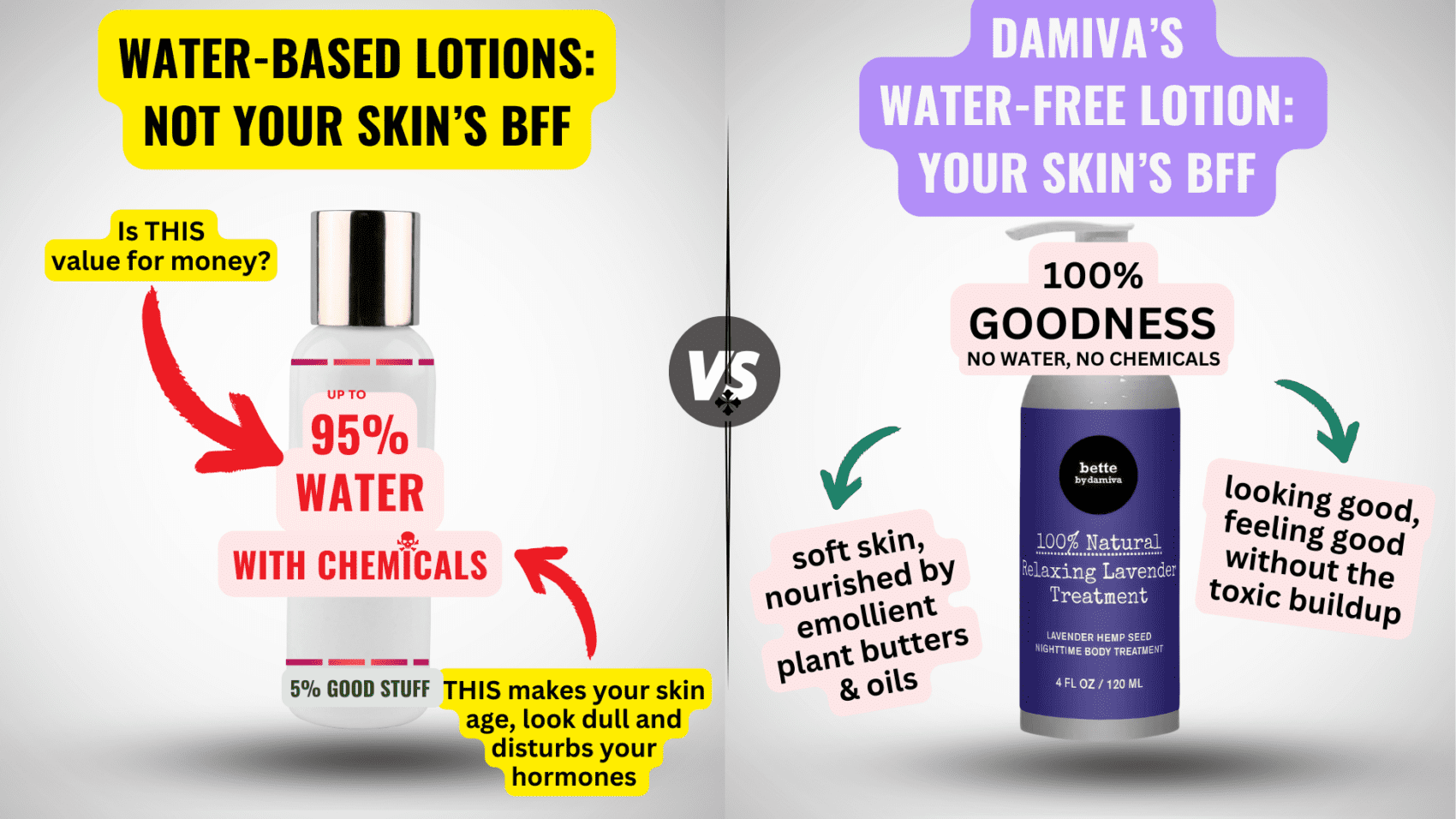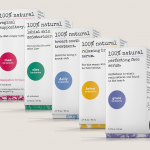The Connection Between Relationships and Well-being
It’s no secret that the quality of our relationships can have a profound impact on our overall well-being. From the joy of a shared laugh with a friend to the comfort of a partner’s embrace, our interactions with others can lift our spirits and provide a sense of belonging. But the influence of relationships extends beyond momentary happiness; they can also have long-lasting effects on our health. Studies have consistently shown that individuals with strong, supportive relationships tend to have better mental and physical health outcomes compared to those who are socially isolated. The presence of positive relationships can act as a buffer against stress, improve mood regulation, and even enhance immune function, leading to a healthier, happier life.
How Conflict Affects Hormonal Balance
While positive interactions can be a boon to our health, conflict-ridden relationships can take their toll. Disagreements and tension can trigger the body’s stress response, releasing hormones like cortisol and adrenaline. These hormones are beneficial in short bursts, helping us to react to immediate threats. However, chronic stress from ongoing conflict can lead to hormonal imbalances that affect various bodily systems. Over time, this can contribute to a range of health issues, including anxiety, depression, heart disease, and weight gain. It’s clear that the nature of our relationships can directly influence our hormonal balance and, by extension, our overall health.
The Positive Impact of Supportive Relationships
On the flip side, supportive relationships can have a myriad of positive effects on our health. When we feel supported by those around us, we’re more likely to engage in healthy behaviors, seek medical attention when necessary, and maintain a positive outlook on life. Emotional support can lower levels of stress hormones, while physical intimacy, such as hugging, has been shown to reduce blood pressure and heart rate. Moreover, the knowledge that someone has our back can provide a sense of security and confidence that permeates all aspects of life. In essence, supportive relationships don’t just make us feel good—they can actually improve our health in tangible ways.
Understanding Hormones and Their Role in Health
Overview of Key Hormones Affected by Relationships
Relationships, whether romantic, familial, or platonic, can significantly influence our hormonal balance, which in turn affects our overall health. Key hormones that are particularly sensitive to the quality of our interpersonal connections include oxytocin, often referred to as the “love hormone,” which fosters bonding and trust; cortisol, which is associated with stress and can be modulated by the support or strain in relationships; and the sex hormones like estrogen and testosterone, which not only govern reproductive health but also influence mood and behavior.
The Science Behind Hormones and Emotions
The intricate dance between hormones and emotions is a testament to the complex biochemistry of the human body. Hormones like oxytocin, dopamine, and serotonin play pivotal roles in shaping our emotional experiences and responses. Oxytocin, for instance, is released during intimate moments and enhances feelings of attachment and affection. Dopamine is linked to pleasure and reward, often surging during the early stages of love, while serotonin contributes to feelings of happiness and well-being. These hormones can create a feedback loop with our emotions, where the feeling of being loved can trigger hormonal changes, which in turn amplify those very emotions.
Long-term Health Implications of Hormonal Imbalance
Chronic imbalances in hormones can lead to a host of health issues. Elevated cortisol levels over prolonged periods, often a result of sustained relationship conflict, can suppress immune function and increase the risk of numerous health conditions. Conversely, supportive relationships that promote the release of oxytocin can have protective effects, such as reducing blood pressure and boosting immune responses. The balance of sex hormones is also crucial; imbalances can affect not only reproductive health but also cardiovascular health, bone density, and muscle strength. Therefore, nurturing healthy relationships can be seen as an investment in our long-term hormonal health.
By understanding the hormonal mechanisms at play, we can appreciate the profound impact that our relationships have on our health. It’s clear that fostering positive, supportive relationships is not just beneficial for our emotional well-being but also for maintaining hormonal balance and overall health.

Self-Care as the Foundation of Healthy Relationships
The Importance of Prioritizing Self-Care
Self-care is often touted as a buzzword in wellness circles, but its significance extends far beyond the realm of individual health. It is the bedrock upon which happy and healthy relationships are built. When individuals engage in regular self-care, they are better equipped to bring positivity, energy, and patience into their interactions with others. Prioritizing self-care is not an act of selfishness; rather, it is an acknowledgment that one must be in a good place physically, mentally, and emotionally to contribute to the well-being of a relationship.
Practical Self-Care Strategies
Implementing self-care into daily life can take many forms, and it’s important to find practices that resonate personally. Here are some strategies:
- Physical Self-Care: This includes regular exercise, adequate sleep, nutritious eating, and healthcare appointments. Physical well-being directly impacts energy levels and mood, which in turn can affect relational dynamics.
- Mental Self-Care: Engaging in activities that reduce stress and enhance mental health, such as meditation, reading, or hobbies, can help maintain a balanced state of mind.
- Emotional Self-Care: Allowing time to process and express emotions is crucial. This may involve journaling, therapy, or open communication with trusted friends or partners.
- Social Self-Care: While nurturing relationships is part of self-care, it’s also important to set aside time for oneself, away from social obligations, to recharge.
The Ripple Effect of Self-Care on Relationships
The benefits of self-care are not confined to the individual; they create a ripple effect that extends to one’s relationships. When individuals are at their best, they are more likely to be empathetic, communicative, and responsive—qualities that are essential for healthy relationships. Moreover, self-care can serve as a model for others, encouraging them to also prioritize their well-being, which can lead to a mutually supportive dynamic. In essence, self-care fosters a virtuous cycle where the health of one person amplifies the health of the relationship, and vice versa.
In conclusion, self-care is not a luxury but a necessity for fostering happy and healthy relationships. By taking care of oneself, individuals are better equipped to engage in positive interactions, manage conflict effectively, and provide the support that relationships thrive on. As such, self-care should be integrated into the fabric of daily life, with the understanding that its benefits will be felt far beyond the self.

THEN IT CONTAINS TOXIC CHEMICALS. WHY RISK IT GETTING SICK? GO CHEMICAL FREE.
Communication Strategies for Relationship Harmony
The Power of Positive Communication
Positive communication is the cornerstone of a healthy relationship. It involves expressing thoughts and feelings in a way that is clear, direct, and respectful. When partners communicate positively, they build trust and understanding, which are essential for a harmonious relationship. Positive communication also means acknowledging and appreciating your partner’s perspective, even when it differs from your own. By focusing on what you appreciate about your partner and expressing gratitude, you reinforce the bond between you and create an environment where love can flourish.
Asking for What You Want vs. Complaining
One of the key differences in communication styles is between asking for what you want and complaining about what you don’t have. When you complain, you focus on the problem, which can lead to negativity and resentment. On the other hand, asking for what you want is a proactive approach that involves expressing your needs and desires in a positive and constructive manner. It’s important to be specific and clear about what you want, and to express it in a way that is not demanding or critical. This approach encourages cooperation and understanding, and it allows your partner to respond with empathy and support.
Active Listening and Empathy in Conversations
Active listening is a skill that requires full attention to the speaker, without interrupting or planning your response while they are talking. It involves listening with the intent to understand, not just to reply. When you actively listen, you give your partner the gift of being heard and understood, which is a powerful form of emotional support. Empathy goes hand-in-hand with active listening. It’s the ability to put yourself in your partner’s shoes and understand their feelings and perspective. Empathy fosters deeper connection and trust, and it helps to defuse conflict and build a stronger, more resilient relationship.
In conclusion, communication strategies such as positive communication, asking for what you want, and active listening with empathy are essential for maintaining harmony in a relationship. By implementing these strategies, couples can improve their connection, deepen their understanding of each other, and create a loving environment that supports both individual and relational health.
Acknowledgement and Appreciation in Relationships
The Difference Between Compliments and Acknowledgements
While compliments and acknowledgements are both positive forms of communication within relationships, they serve different purposes. Compliments often focus on surface attributes or achievements, such as praising someone for their appearance or a job well done. They are typically about the outcome and can be given to anyone. Acknowledgements, on the other hand, go deeper. They recognize the person’s character and the effort behind their actions, making them feel seen and valued for who they are, not just what they do. For example, acknowledging a partner’s patience during a stressful situation highlights their inner strength, rather than just the successful navigation of the stressor.
Expressing Appreciation Effectively
Effective appreciation in relationships transcends mere recognition and involves a genuine expression of gratitude for the other person’s role in your life. To express appreciation effectively, it’s important to be specific about what you are thankful for and to communicate regularly. This could be through verbal expressions, written notes, or thoughtful gestures that align with your partner’s love language. For instance, if your partner values quality time, a dedicated evening together can be a powerful form of appreciation. The key is to ensure that the appreciation is sincere and tailored to the individual, making it resonate more deeply.
The Role of Acknowledgement in Strengthening Bonds
Acknowledgement in relationships plays a pivotal role in strengthening emotional bonds. When partners acknowledge each other’s efforts, feelings, and contributions, it fosters a sense of security and belonging. This validation can encourage both individuals to continue investing in the relationship, knowing that their actions are not only noticed but deeply appreciated. Moreover, regular acknowledgement can create a positive feedback loop, where both partners feel more connected and motivated to support each other. It’s a powerful tool for deepening intimacy and ensuring that both partners feel truly valued and understood within the relationship.
Practical Tips for Hormone-Balancing Relationships
Daily Practices for Relationship Health
Maintaining a healthy relationship is akin to nurturing a garden; it requires daily attention and care. To promote hormone balance and relationship health, consider incorporating these daily practices:
- Physical Affection: Simple gestures like holding hands, hugging, or a gentle touch can release oxytocin, known as the “love hormone,” which fosters bonding and reduces stress.
- Quality Time: Dedicate uninterrupted time each day to connect with your partner, whether it’s sharing a meal or discussing your day, to strengthen emotional intimacy.
- Gratitude: Expressing thanks for even the smallest acts of kindness can boost serotonin levels, enhancing feelings of happiness and well-being.
Setting Boundaries and Expectations
Clear boundaries and expectations are the backbone of any thriving relationship. They ensure mutual respect and understanding, which can prevent the stress and conflict that disrupt hormonal balance. Here are some tips:
- Communicate Openly: Discuss your needs and limits with your partner, ensuring that both parties feel heard and respected.
- Compromise: Find a middle ground where both partners’ needs are met, which can reduce the likelihood of resentment and stress.
- Consistency: Regularly revisit and, if necessary, adjust your boundaries to reflect changes in your relationship or individual growth.
Creating Shared Experiences for Deeper Connection
Shared experiences can deepen your connection and increase the production of happy hormones. Consider these activities:
- Adventure Together: Trying new activities or visiting new places together can release dopamine, enhancing the excitement and pleasure associated with your relationship.
- Collaborative Projects: Working on a project or goal together can foster teamwork and a sense of achievement, boosting endorphin levels.
- Intimacy: Intimate moments are not only about physical pleasure; they also reinforce emotional bonds and trigger the release of oxytocin.
Navigating Relationship Challenges with Grace
Challenges are inevitable in any relationship, but handling them with grace can prevent negative impacts on your health. Here’s how:
- Stay Calm: Approach conflicts with a calm demeanor to avoid excessive cortisol production, which can be detrimental to your health.
- Listen Actively: Listening to understand, rather than to respond, can help resolve conflicts more effectively and maintain hormonal balance.
- Seek Solutions: Focus on finding solutions rather than dwelling on problems, which can help maintain a positive outlook and reduce stress hormones.
By integrating these practical tips into your daily life, you can foster a relationship that not only brings joy and fulfillment but also contributes positively to your hormonal health.
By the way, something for you, a little gift!!!
I am just in the middle of publishing my book. It’s about How women can balance their hormones. One part is about food and diet, of course.
Follow this link and enter your email.
I will send you this part of the book for free once the book is published. It has many concrete, practical tips and recipes and will help you feel better during menopause or times of Big hormonal fluctuations.
Annette, Damiva Lead for Health & Wellness

Conclusion: Integrating Relationship Health into Daily Life
Summarizing the Key Points
The intricate tapestry of human relationships is a profound determinant of health and well-being. As we have explored throughout this article, the dynamics of our closest relationships significantly influence our hormonal balance, which in turn affects our physical and mental health. The connection between relationships and well-being is not merely correlational but causal, with supportive relationships enhancing health through behavioral, psychosocial, and physiological pathways. Conversely, conflict within relationships can lead to hormonal imbalances that may manifest in long-term health implications.
Understanding the role of hormones such as oxytocin, cortisol, and adrenaline reveals the biological underpinnings of how relationships impact our health. These hormones, which fluctuate in response to the quality of our interactions with loved ones, can either promote a sense of security and well-being or contribute to stress and disease. The evidence is clear: nurturing happy and healthy relationships is not just a matter of personal fulfillment but also a critical component of holistic health.
Encouraging Continuous Personal and Relational Growth
To foster hormone-balancing relationships, it is essential to prioritize personal growth and the development of emotional intelligence. Cultivating self-awareness, empathy, and communication skills can lead to more meaningful and supportive interactions with partners, family members, and friends. Additionally, engaging in shared experiences, setting clear boundaries, and navigating challenges with grace can strengthen bonds and promote a harmonious balance of hormones conducive to health.
Continuous personal and relational growth involves a commitment to learning and adapting. It requires the willingness to listen actively, express appreciation effectively, and acknowledge the needs and contributions of others. By investing in our relationships and ourselves, we can create a positive feedback loop that enhances our overall well-being.
Final Thoughts on Relationships and Holistic Health
In conclusion, the integration of relationship health into daily life is paramount for holistic health. The interplay between our social ties and hormonal balance is a critical aspect of our well-being that deserves attention and care. As we have discussed, practical strategies such as daily practices for relationship health, effective communication, and acknowledgment can lead to more profound connections and improved health outcomes.
It is time for individuals, communities, and health policymakers to recognize the significance of happy relationships as a public health priority. By doing so, we can work towards a future where the nurturing of positive relationships is as fundamental to health promotion as diet and exercise. Let us embrace the power of our connections to not only live happier lives but also to foster a healthier society.
As we move forward, let us carry with us the understanding that our relationships are not just a source of joy but a foundation for good health. By integrating the key points discussed into our daily lives, we can ensure that our relationships serve as a wellspring of well-being for ourselves and those around us.










